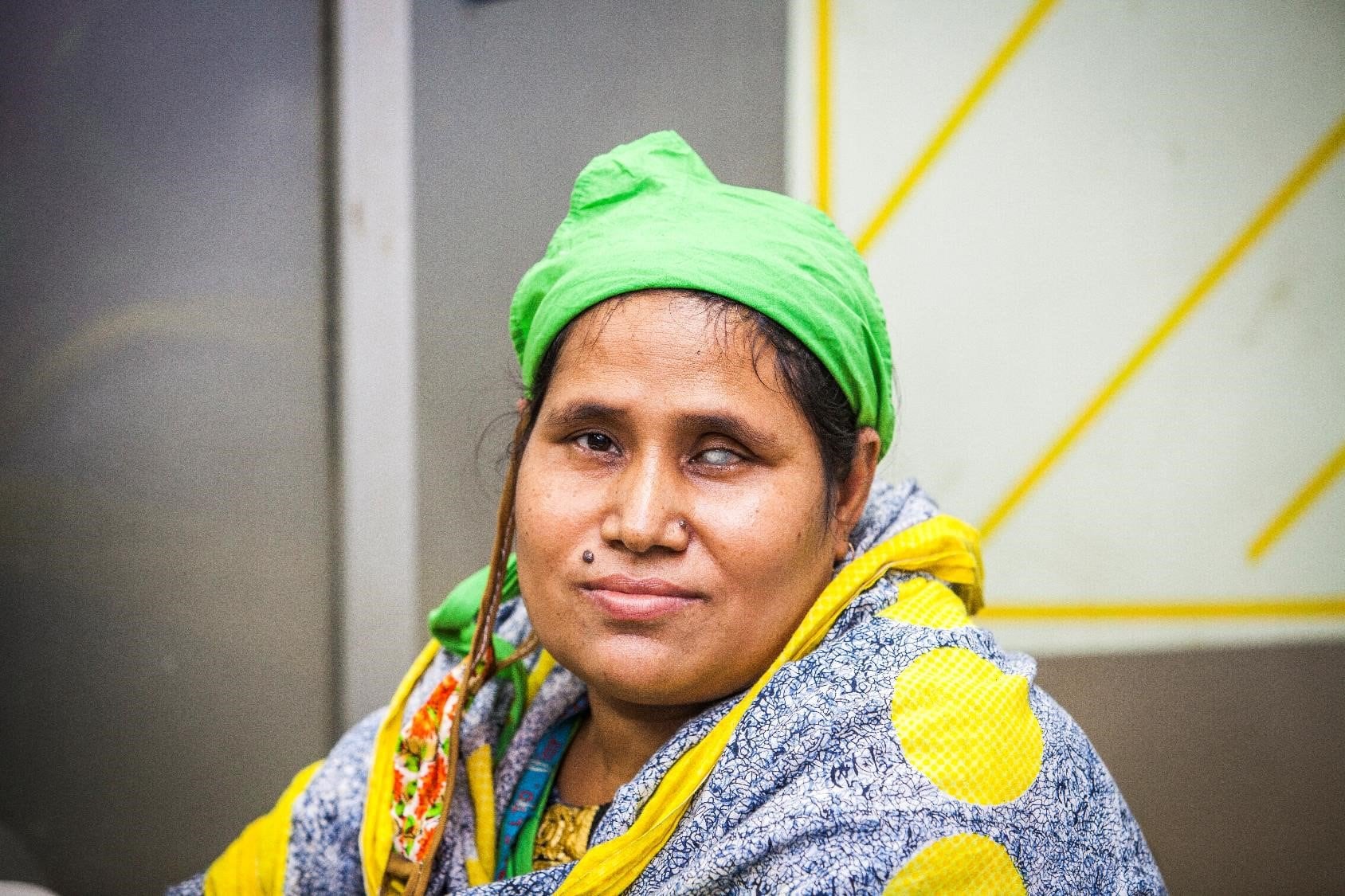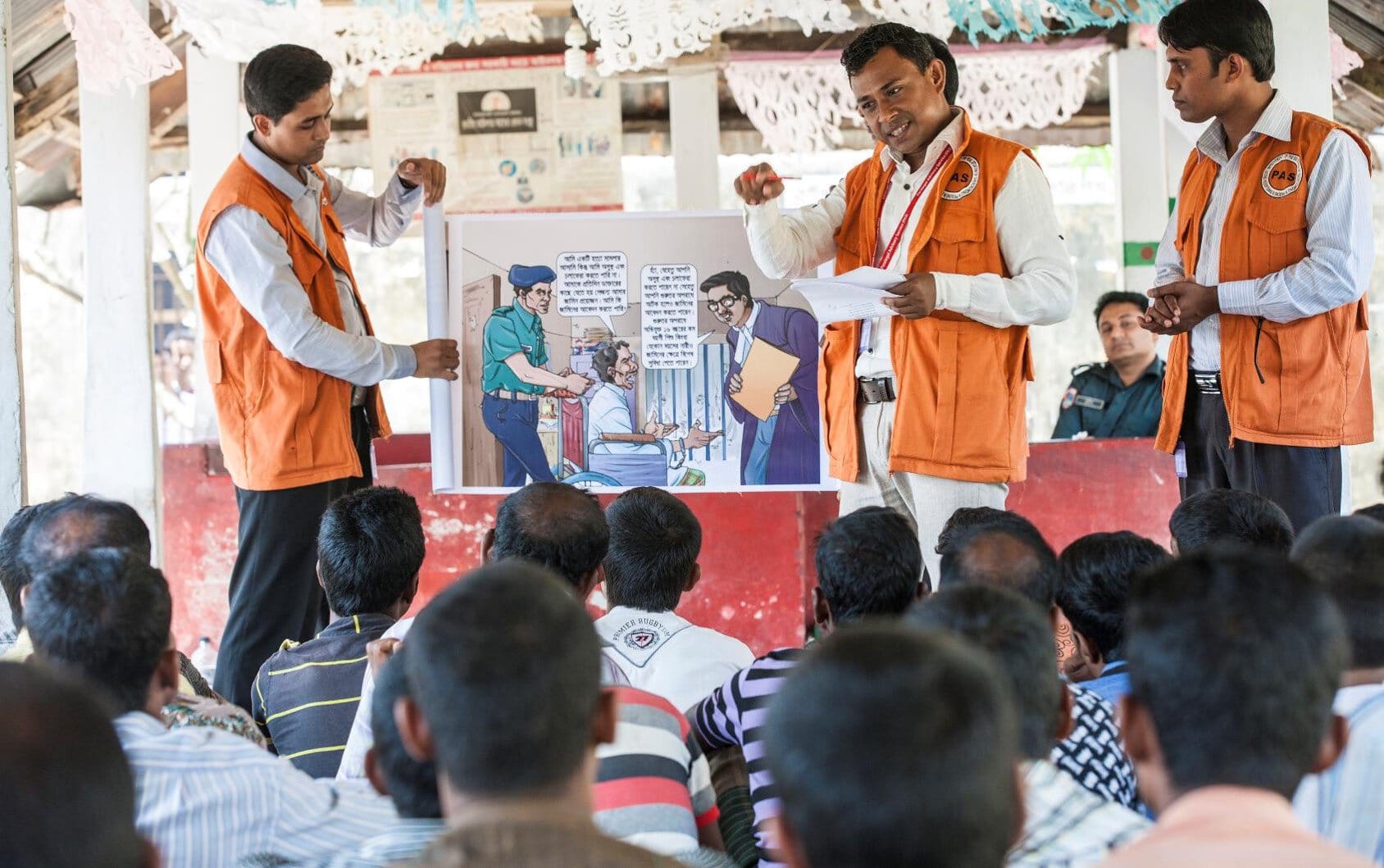
Inclusion is a human right. The United Nations Convention on the Rights of Persons with Disabilities (UN CRPD) obliges the contracting states, in Article 32 of the Convention, to make their development cooperation inclusive: In the “Menschenrechtskonzept der deutschen Entwicklungspolitik” [in German; Human rights concept of German development policy] from 2023, the Federal Ministry for Economic Cooperation and Development (BMZ) formulates key requirements for inclusive development cooperation. In addition to the UN CRPD, it is also following the 2030 Agenda and its guiding principle of “Leave No One Behind”. The developed quality criterion “Human Rights, Gender Equality, and Disability Inclusion” serves as a “seal of quality” and should be applied in all development cooperation projects. The Human Rights Concept serves as a cornerstone for state, private and civil society actors in German development cooperation for the planning and implementation of inclusive projects.
Despite the legal framework defined by the UN CRPD, persons with disabilities are generally not able to participate in society equally. They rarely have access to education and the labor market, health and social security systems or financial services. Crises such as the COVID-19 pandemic, armed conflicts or forced displacement further exacerbate these inequalities.
In order to promote the inclusion of persons with disabilities, the German government is pursuing two approaches in development policy: “Disability Mainstreaming” and “Empowerment”. The concept of “Disability Mainstreaming” means incorporating the inclusion of persons with disabilities as a key element in existing structures, programs, and activities. The inclusion of persons with disabilities is defined as a cross-cutting issue that must be considered in all social and political areas. “Empowerment”, however, aims to enable persons with disabilities to live independently and self-determined and to actively participate in society.
Disability, gender and intersectionality in German development cooperation
To eliminate inequalities, German development policies take aspects of multiple discrimination into account. Special attention should be given to persons with disabilities who are affected by multiple discrimination (“intersectionality”) due to other characteristics such as religion, gender, sexual orientation, or origins. For example, women and girls are disproportionately affected by human rights violations. For this reason, Article 6 of the UN CRPD obliges government agencies to take targeted measures so that women with disabilities can exercise their rights on equal footing.

Organisation of Persons with Disabilities
“Nothing about us without us” is the motto of the international movement of self-advocacy organizations for persons with disabilities. This claim can also be found in the UN CRPD (Article 4 and Article 29) and is included by German development cooperation. Persons with disabilities should be actively involved in political dialogue and in the planning, implementation, and evaluation of development cooperation projects. After all, no one can better advocate for the interests of persons with disabilities than themselves. The most efficient way to achieve inclusive development cooperation is to let persons with disabilities share their personal experiences. They have the knowledge that it takes to break down barriers and promote inclusion in a targeted manner. Persons with disabilities have organized themselves into self-advocacy organizations. The Deutsche Gesellschaft für internationale Zusammenarbeit (GIZ), the Kreditanstalt für Wiederaufbau (KfW), but also numerous non-governmental organizations such as the Christoffel-Blindenmission (CBM) and Humanity & Inclusion (HI) work together with organizations of persons with disabilities to make change in the partner countries.
Organisations of Persons with Disabilities (OPDs) are representative organisations or groups of persons with disabilities, and they are considered as legitimised interest groups of their members. OPDs can be single disability organisations (i.e., formed of members with type(s) of impairment) or cross-disability organisations (i.e., formed of individuals with different types of impairments). They work in various fields of
- to force the rights of persons with disabilities and to progress the lobbying.
- to inform the public about the interests of persons with disabilities.
- to make sure that the government and other relevant organisations promote the rights of persons with disabilities.
- being an expert and give advice to other institutions concerning disability-inclusion.
- to implement their own development projects and to offer services to persons with disabilities.